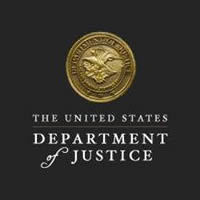Greenbelt, Maryland – U.S. District Judge Theodore D. Chuang sentenced Arley Ray Johnson, age 63, of Bowie, Maryland, yesterday to 78 months in federal prison, followed by three years of supervised release, for conspiracy, wire fraud, and securities fraud charges, in connection with a $28 million Ponzi scheme involving 1st Million, a purported wealth management and financial literacy company. Johnson was convicted on September 29, 2022, after a 10-day trial.
The sentence was announced by United States Attorney for the District of Maryland Erek L. Barron; Special Agent in Charge Thomas J. Sobocinski of the Federal Bureau of Investigation, Baltimore Field Office; Special Agent in Charge Matthew R. Stohler of the United States Secret Service – Washington Field Office; and Postal Inspector in Charge Damon E. Wood of the U.S. Postal Inspection Service – Washington
According to the evidence presented at his trial, Johnson conspired with his co-defendants, including Dennis Mbongeni Jali and John Erasmus Frimpong to defraud investors through several related entities including The Smart Partners LLC, which did business as “1st Million Dollars” or “1st Million.” Johnson served as the Chief Operating Officer for 1st Million, which was headquartered in Largo, Maryland.
According to trial evidence, 1st Million presented itself as a wealth management and financial literacy company, with its core business offering being a 12-month guaranteed investment contract. These investment contracts, entitled “Corporate Guarantees,” represented that the client’s principal would be invested in foreign currency or cryptocurrency and guaranteed individuals who invested money with 1st Million monthly returns ranging from 6% to 35% of the initial investment. At the end of the investment period, the contract promised that the investor would receive the return of all of the principal invested. In reality, the evidence at trial showed, 1st Million did not invest victims’ funds as promised and, instead, misappropriated the funds for themselves and used the funds to keep the scheme afloat, including using funds from new investors to repay existing investors.
In addition to misrepresenting that victim funds would be used to invest, Johnson and his co-defendants also falsely stated that investors’ principal would be held in a trust account protected from any financial instability of 1st Million or market volatility. In fact, victim funds were not placed in a trust account or otherwise guaranteed. In addition, Johnson and his co-defendants falsely claimed that 1st Million was financially healthy and earning astronomical profits, but 1st Million’s accounts, some of which were controlled by Johnson, were frequently overdrawn and 1st Million had substantial cash flow problems, all of which Johnson and his co-conspirators concealed from investors.
As detailed in the trial evidence, Johnson and his co-defendants recruited victims to invest in 1st Million by holding promotional events at upscale hotels and event spaces, attending church-sponsored events intended to target investments from churchgoers, and representing themselves as religious men more interested in the financial freedom of others than personal financial gain. Johnson and his co-defendants presented themselves as “pastors,” and told prospective investors that 1st Million’s work was in furtherance of God’s mission as it helped churches and their members achieve personal wealth and financial freedom. Johnson and his co-defendants also hired “agents” of 1st Million to organize recruiting events to attract more investors, in exchange for a higher return on the agents’ investments.
By Spring 2019, 1st Million’s accounts were often overdrawn by hundreds of thousands of dollars, and some of the checks 1st Million sent to pay investors monthly returns were returned by the bank due to insufficient funds. Nevertheless, Johnson and Frimpong continued to solicit funds from existing investors, as well as new investors, and failed to tell any of these potential investors of 1st Million’s financial problems. Ultimately, the scheme collapsed in May 2019 and hundreds of 1st Million investors collectively lost millions of dollars.
Over the course of the conspiracy, Johnson and his co-defendants persuaded or attempted to persuade more than 1,200 victims from across the United States to provide them with wire transfers, checks, and cash totaling more than $28 million, from numerous victims. The evidence proved that although the victims were promised tremendous returns on their investments, Johnson and his co-conspirators did not invest any of the money, instead using it to fund their own lifestyles and to perpetuate the fraud scheme.
John Erasmus Frimpong, age 42, of Upper Marlboro, Maryland previously pleaded guilty to a wire fraud conspiracy, conspiracy to commit securities fraud, and to securities fraud. Judge Chuang has scheduled sentencing for Frimpong on February 10, 2023, at 9:00 a.m.
Jali fled the United States in May 2019, but has since been arrested in South Africa.
Separate civil actions filed against Johnson and his co-defendants by the Securities and Exchange Commission and the U.S. Commodity Futures Trading Commission remain pending.
United States Attorney Erek L. Barron commended the FBI, the U.S. Secret Service, and the U.S. Postal Inspection Service for their work in the investigation. Mr. Barron thanked Assistant U.S. Attorneys Caitlin R. Cottingham and Jennifer L. Wine, who are prosecuting the case.
For more information on the Maryland U.S. Attorney’s Office, its priorities, and resources available to help the community, please visit www.justice.gov/usao-md and https://www.justice.gov/usao-md/report-fraud.
# # #



